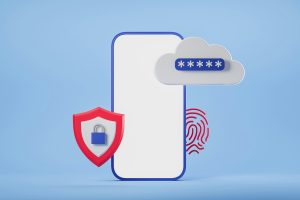Tips for creating your rental budget and managing expenses
Renting a property can be an exciting experience, but it also comes with financial responsibilities. Creating a rental budget and managing your expenses effectively is essential for maintaining financial stability and ensuring a smooth rental experience. In this blog post, we’ll provide you with valuable tips to help you create a rental budget and manage your expenses wisely.
Determine Your Income
The first step in creating a rental budget is to determine your monthly income. Include all sources of income, such as your salary, freelance work, or any additional income streams. Having a clear understanding of your income will help you set realistic financial goals and allocate funds accordingly.
List Your Expenses
Make a comprehensive list of your monthly expenses, including rent, utilities, groceries, transportation, insurance, entertainment, and any other regular payments. It’s important to be thorough and accurate while listing your expenses, as this will help you identify areas where you can potentially cut costs.
Prioritize Your Expenses
Once you have a list of your expenses, prioritize them based on their importance. Your rent should be your top priority, followed by essential utilities like electricity, water, and internet. Afterward, allocate funds for groceries and transportation. By prioritizing your expenses, you can ensure that the most crucial aspects of your budget are taken care of first.
Consider Additional Costs
In addition to your regular expenses, consider any additional costs that may arise. This includes maintenance fees, parking fees, pet expenses, or any other specific charges associated with your rental property. By accounting for these additional costs, you can avoid any unexpected financial burdens.
Set a Realistic Budget
Now that you have a clear understanding of your income and expenses, it’s time to set a realistic budget. Allocate a specific portion of your income for each expense category. Be mindful of your financial limits and avoid overspending. It’s advisable to leave some room for savings and emergencies within your budget.
Track Your Expenses
Once your budget is in place, it’s crucial to track your expenses diligently. Use budgeting apps or spreadsheets to monitor your spending and ensure that you’re sticking to your planned budget. Tracking your expenses will give you a clear picture of your financial habits and help you make adjustments if needed.
Cut Costs Where Possible
To manage your expenses effectively, look for opportunities to cut costs. Consider options like cooking at home instead of dining out frequently, reducing utility usage, or finding more affordable alternatives for certain expenses. Small adjustments can make a significant difference in the long run.
Communicate with Your Landlord
Maintaining open communication with your landlord is essential when it comes to managing expenses. If you’re facing financial difficulties or have concerns about certain costs, discuss them with your landlord. They may be willing to negotiate or provide you with alternative solutions.
Build an Emergency Fund Where Possible
Having an emergency fund is crucial for handling unexpected expenses or temporary financial setbacks. Aim to save a portion of your income each month and gradually build an emergency fund that covers at least three to six months’ worth of living expenses.
Creating a rental budget and effectively managing your expenses is key to a successful and stress-free renting experience. By understanding your income, prioritizing expenses, setting a realistic budget, and tracking your spending, you can maintain financial stability and avoid unnecessary financial stress. Remember, small adjustments and open communication can go a long way in ensuring a smooth rental journey.
Got your budget ready for your dream rental? Make the next step with Rentfaster!








